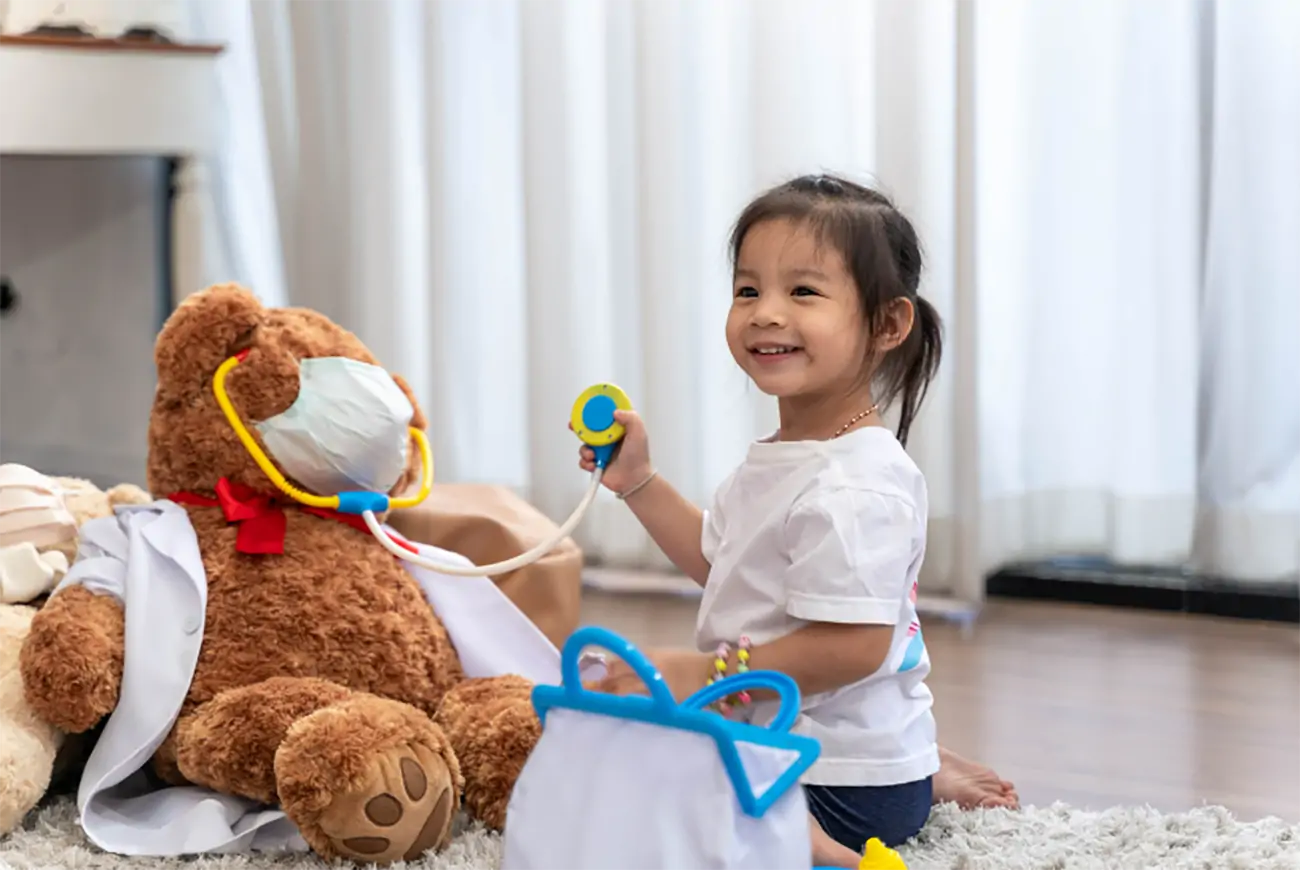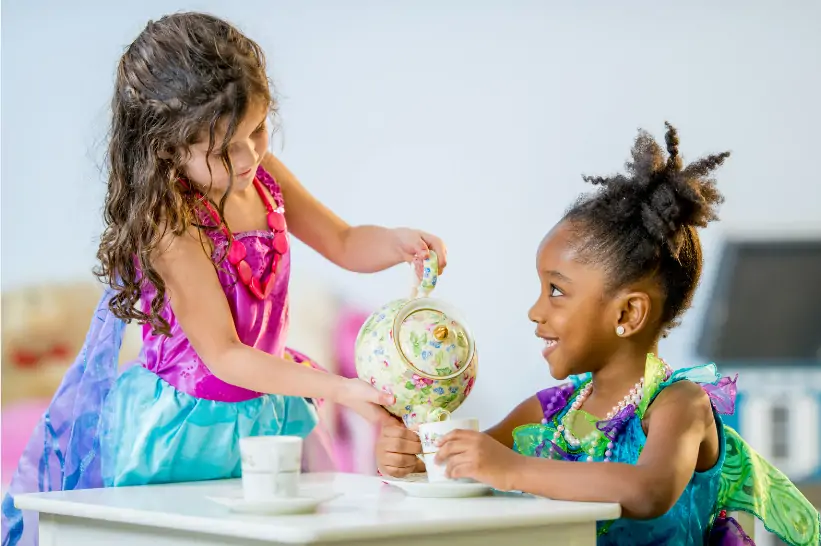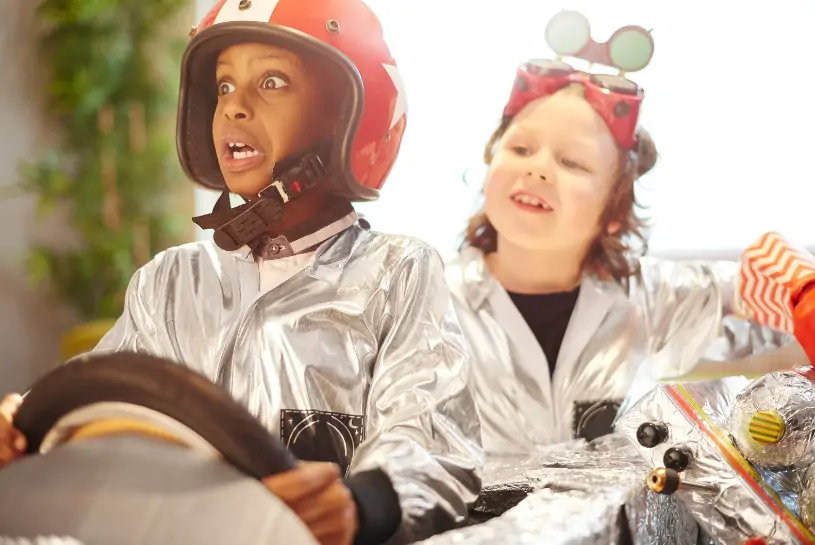How Role Play Can Help Children to Understand the World
8 min read
Last Modified 5 September 2024 First Added 21 August 2024

Kids have an incredible knack for imaginative play, and role play can tap into that uncanny ability and help your little one learn important lessons. Role play is more than just a game. It helps your child to develop skills and teaches them about the world around them; it is an important learning aid that can be utilised.
Role play assumes different roles and acts out various scenarios. These can be real-life scenarios or imagined ones. During the activity, children can use their imagination and creativity to bring the roles to life, using their bodies, voices, and actions to interact with others. This can be done with costumes and props or be fully within the imagination.
Role play has several benefits for children and can help them develop various skills. For young children, it can help with various aspects of the EYFS framework. No matter your child’s age, role play can help their learning and development. Some benefits include:
By engaging in pretend play, your child will develop their imagination and creative thinking. Role play gets your little one to invent different scenarios and explore endless possibilities, developing storytelling abilities and encouraging them to think outside the box. All of this fuels their creativity.
As your child explores different scenarios within their role-playing game, they are given a safe space to explore their emotions. Role play allows children to look at situations from different perspectives, explore various emotions, and discover different social dynamics. For different scenarios, your child must collaborate and compromise, listen to others, and understand another’s perspective.
When looking at scenarios from different perspectives, your child will develop empathy, which is an important part of early learning.
Another emotional and social benefit of role play is that it gives children a safe space to work through and talk about their emotions. Externalising their experiences and emotions can help them navigate more challenging situations and emotions they may encounter in the future, preparing them by letting them explore these situations in a safe place.

Role play stimulates your child to think, problem-solve and make decisions. All of this has a beneficial impact on their cognitive development. This helps them to learn how to navigate social situations and anticipate consequences. It also helps them to work out how to overcome challenges and even resolve conflict.
One benefit of role play is that it allows your child to learn other skills in a fun way, especially for young children. For instance, it can aid with learning literacy skills. To help with this, why not role-play a school and have your child as the teacher writing on the blackboard? They’ll be improving their literacy without even realising it.
Maths is another area where role play can make learning fun. Play shop and have your child add up what the purchases cost and give you change. Or you could play at baking and have your child come up with the measurements needed.
Use role play to develop your little one’s critical thinking abilities. During role-play, you can introduce your child to circumstances and obstacles that they have not come across before. This allows them to analyse the issue and come up with solutions. To do this, they will have to be resourceful and learn to adapt to changing situations – all important skills to learn.
Different scenarios call for different methods of communication, and role play can help with this skill. When acting out different situations, your child will have to interact with others in a way they normally wouldn’t. Whether this is simply pretending to order a meal or negotiating with pirates to share the treasure, your child will learn how to express their thoughts and emotions.
Role play can help with communication beyond language though. You could have a situation where you have to communicate via writing, for example.

Although role play can take your child to far-off worlds and fantasy adventures, the more mundane, real-world ideas can teach your child a lot about the world around them (and it isn’t a mundane scenario for them to play). Occupational role play is a great way to use this game as a way to teach your child about the world we live in. Here are some of our favourite occupational role-plays:
You can easily encourage your little one to take part in role-play and join in with their game. Get started by:
Find out how other activities can help your child develop and parenting tips on our Childhood Adventures blog.
Read our disclaimers.